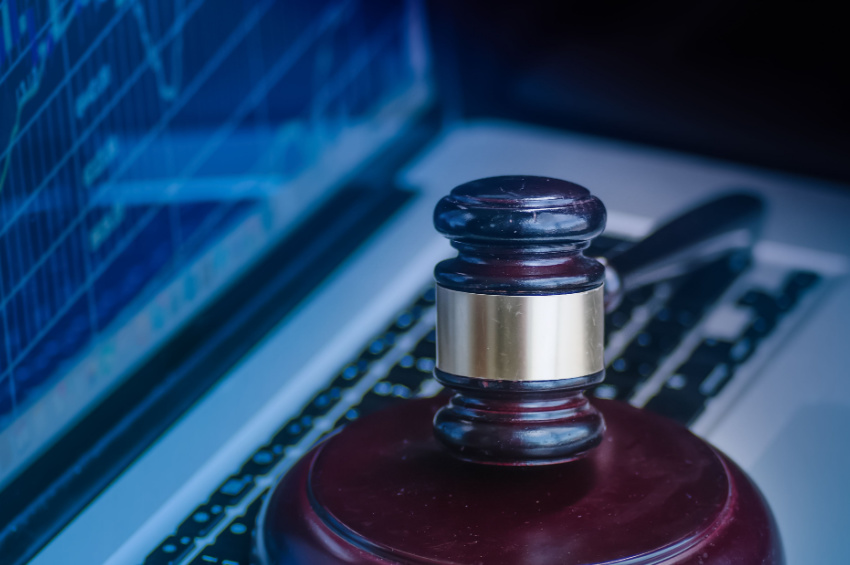Commodities broker Trafigura lost a lot of money because of trade finance fraud conducted by metals broker Prateek Gupta and others associated with UD Trading Group. Everything started when they mistook the cargo for nickel material. The large commodities dealer said it was the prey of trade finance fraud, which may cost over $500 million because the nickel that had been delivered was not nickel. Trafigura, along with other trading companies and miners, has moved quickly to meet the surging need for nickel. Let us see how in this article.
Sea of Deception: Trafigura’s Battle Against Alleged Trade Finance Fraud
Trafigura has pointed the finger of blame at TMT Metals, and other affiliates of UD Trading Group, which it believes are managed by metals dealer Prateek Gupta and are responsible for the alleged fraud. The Wall Street Journal attempted to contact TMT and UD for comment but received no response.
According to Trafigura, the company has filed a lawsuit against Mr. Gupta. Because of the severity of the possible losses, a charge of $577 million was made for the current fiscal term. In the past, the metals market has been prone to scams. For instance, in 2014, banks lending money to commodities merchants and taking copper as security were hit with a wave of litigation after copper went missing in the Chinese port of Qingdao.
According to Trafigura, the containers carrying the metal were at the center of the alleged fraud. A company representative indicated that the trading firm had done business with Mr. Gupta’s firms for years without incident. However, warning signs appeared in 2022. Trafigura claimed it had been deceived by fraudulent paperwork and that there was no proof to imply any of its personnel were involved.
Several sources say Trafigura has begun inspecting a sample of containers in Rotterdam. Nickel, a shiny metal that sells for roughly $30,000 per metric tonne due to rising demand for electric vehicles, was not found when the containers were examined. According to the source, the crates contained fewer valuable commodities, such as carbon steel. Trafigura is experiencing a financial hit since it receives commodities that are less valuable than the expensive nickel it paid for.
Navigating Risky Waters: Trafigura’s Role in Shipping Cargo
Trafigura, with headquarters in Geneva and an office in Singapore, is a small group of businesses controlling the global trade in raw materials. Private companies, including Trafigura’s savage oil market rival Vitol, control the majority of the industry. A small number of these businesses are listed on public stock exchanges, such as Glencore PLC.
The pandemic and the conflict in Ukraine both produced volatility in the commodity and energy markets, which profited Trafigura. In the most recent fiscal year, it produced nearly $7 billion in profit by transporting a significant portion of the world’s oil, metal, coal, and natural gas supplies.
Trading businesses frequently enter nations with low competition from Western firms, negotiating contracts with local governments to manage the state’s natural resources.
After years of establishing connections in the Moscow oil sector, Trafigura survived a crisis at the beginning of 2022 when it hurriedly exited the Russian oil market. In 2020, when the epidemic first hit and commodity prices plummeted, a number of reported frauds surfaced. The bankruptcy of Singaporean oil trader Hin Leong Trade Pte. Ltd. garnered the most media attention. Its failure led to a loss for other financial institutions, especially HSBC Holdings PLC.
Notwithstanding the setback, Trafigura reported that it was still on course to surpass the $2.7 billion in profits it achieved in the initial half of its previous fiscal year. According to MarketAxess, the company’s 5.875% securitizations traded for 91.85 cents on the dollar, down from 93.75 cents.
Investigation of Trafigura’s Deal to Improve DRC’s Mining Sector
The government of the Congo and the trading company Trafigura have agreed to work together to improve working conditions at artisanal mines in exchange for continued access to cobalt for use in rechargeable batteries. After reaching an agreement with the government Entreprise Générale du Cobalt, the Geneva-based trader announced it would fund the establishment of up to six restricted zones where artisanal miners would labor to excavate copper and cobalt under improved safety measures. To improve working conditions in the DRC, the world’s largest supplier of cobalt used in lithium-ion batteries, electric car manufacturers like Tesla have vowed to help.
Mining for cobalt is done by hand with little in the way of safety precautions in the mineral-rich Katanga region of the country, and sometimes even young children are involved. Last year, Tesla became a member of the Fair Cobalt Alliance, a group supported by the business community that works to enhance safety and security at DRC’s artisanal mining sites. According to James Nicholson, Trafigura’s head of corporate responsibility, the DRC has seen a “sea-change” in the attitude of carmaker companies. Many now consider purchasing the metal from the nation if labor issues could be rectified. He explained, “For too long, the cobalt industry has been criticized, which helps us tackle a fundamental problem.”
Also Read: Collaboration to Support SME Growth
Even now, some significant automakers hesitate to use components made with materials from the DRC’s unregulated mining industry. Volkswagen said it would no longer purchase cobalt from unregulated artisanal mining in the country. To formalize the industry and boost pricing for local miners, the DRC government announced that EGC would have the authority to purchase cobalt in the DRC. At present, most hand-mined cobalt is supplied to Chinese traders near Kolwezi.
The company Trafigura has pledged to pay for the establishment of the zones and the establishment of ore purchase stations. Mr. Nicholson explained that QR codes would be used to verify the origin of metal purchased from the sites. The corporation was vague about the amount of money it would put in. In partnership with a local mining firm called Chemaf, Trafigura launched its first regulated site for impromptu mining at Mutoshi in 2018. In 2017, $450 million was collected to help fund the building. But now that the pandemic has ended, the project is closed.
Final Thoughts
The recent disclosure that commodities trader Trafigura may lose more than half a billion dollars due to systematic fraud is a major setback. Trafigura’s image as a lucrative player in international commodity markets could take a hit if the allegations of fraud concerning containers of nickel are proven true. Trading in real commodities is a big deal, and this is not the first time the metal markets have encountered fraud. After thorough investigation, seeing the increasing need for battery metals like cobalt, Trafigura has worked to enhance the mining industry in the Democratic Republic of the Congo.
Global trade leaders has a large database of information about big and small FinTech companies and trade finance firms. Visit https://www.globaltradeleaders.com/ for more stories of Fintech leaders.



